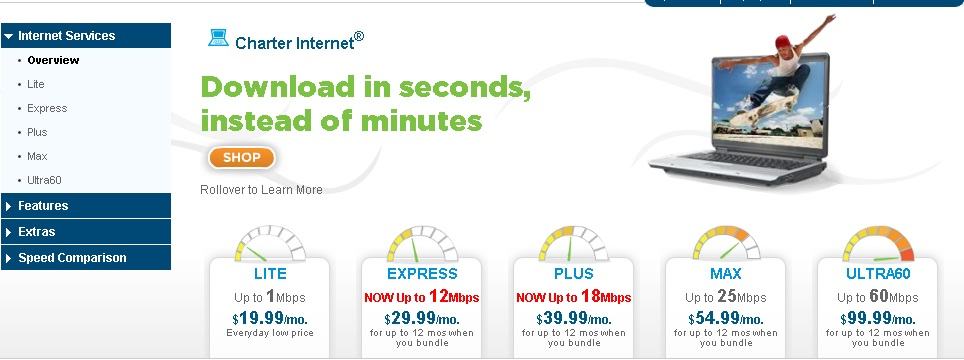
Phillip "Frontier DSL is Too Slow and Expensive" Dampier
Frontier Communications occasionally sends me mailers promoting their latest offer for DSL and/or satellite service. The price on the front of the letter looks good — usually around $20 a month — despite the fact the best Frontier can deliver my area less than one mile from the Rochester, N.Y. city line is 3.1Mbps. But Frontier’s fine print is infamous for bill padding extra fees, charges, and service commitments that makes the out-the-door price literally higher than Time Warner Cable’s Road Runner service, which actually delivers substantially faster speed at a lower price.
I’m not alone.
Customers in several Frontier service areas are openly wondering why they should do business with the phone company when they are charging more for less service.
In Ohio, Frontier Communications competes in some areas with Buckeye Cablevision. Frontier sells DSL Internet in northwest Ohio for $29.99 a month. For that, customers like Inquiry receive 6.2Mbps even though they bought 7.1Mbps service.
“Their [Internet prices] are significantly higher when comparing the other providers in northwest Ohio,” Inquiry writes. “Buckeye Cablevison has 10Mbps service for $24.95/month. And they actually give the customer 10.8Mbps.”
In areas where Frontier often finds itself the only game in town, that price is downright cheap.

Frontier's "High Speed" Fantasies
Nialis in Aliso Viejo, Calif. doesn’t know what Inquiry is complaining about. He pays $30 a month for 1.5Mbps DSL service from Frontier.
Eric McDaniel from McDavid, Fla. found small relief when he complained about the 2.2Mbps DSL service he was paying $39.99 a month to receive.
“I now pay $29.99, and that is only because I threatened to cancel my service,” McDaniel says. “Now they give me a $10 recurring credit.”
“What are you going to do when they’re the only show in town?”
Even Charter Communications, one of America’s lowest rated cable companies, has prices and service that beats Frontier hands-down.
In some Charter areas like Wausau, Wisc., Frontier DSL comes with a two year service commitment, a $14.99 monthly Wireless Router Fee, and comparatively slow service:

Frontier Communications Pricing - Wisconsin
Customers can pay $29.99 a month (before fees) for “up to 3Mbps” DSL service from Frontier or spend $29.99 and get 12Mbps from Charter:

Charter Communications Pricing - Wisconsin
So how does Frontier Communications keep offering service at uncompetitive prices? They have much greater success in the rural markets they favor, where cable competition rarely exists. Plus, many consumers may not understand the impact of the speed differences they receive from different providers, tending to blame “the Internet” for slowdowns more than the provider delivering the service. Some customers may also be attracted to valuable customer promotions that include free netbooks or television sets, and forget about the fine print service commitments that come with the deal.
As dwink9909 from Clintonville, Wisc. shared on the Frontier Broadband Reports forum: “Frontier Communications Inc. is free to charge the maximum the market will bear primarily because they are the only provider in most of the areas they serve. That’s certainly true here in Wisconsin. Six miles south of me you can get dial-up service from two dozen ISPs and broadband via wireless, cable or DSL, but here there is only a single provider for telephone and broadband. We are among the “under-served” millions who are just glad to have high speed Internet at any cost.”
Frontier is only too happy to oblige.
 A Tampa woman claims that a cable installer who engaged in alleged inappropriate sexual conduct has left her traumatized for life, and she may end up moving to cope with the bad memories that she cannot escape.
A Tampa woman claims that a cable installer who engaged in alleged inappropriate sexual conduct has left her traumatized for life, and she may end up moving to cope with the bad memories that she cannot escape.

 Subscribe
Subscribe








